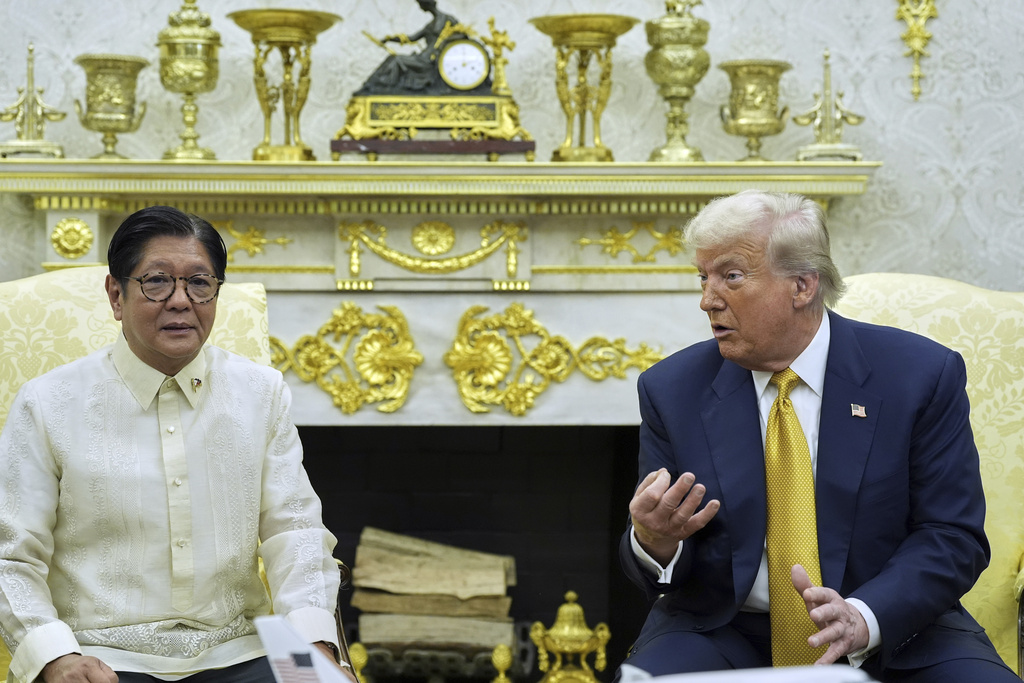
The latest tariff deal between the United States and the Philippines is seen as a "lopsided" deal that can hurt both the Philippine export and agriculture sectors, analysts said.
US President Donald Trump met his Philippine counterpart, Ferdinand Marcos Jr., on Tuesday at the White House over trade and bilateral relations. Trump announcing on Truth Social, his social media platform, that they have "concluded a trade deal" where the Philippines will open its market to the US and impose zero tariffs on US goods.
Trump said the Philippine exporters to the US will pay a 19 percent tariff starting Aug 1. The tariff rate is one percentage lower than the 20 percent duty that Trump has threatened to charge against Philippine goods in a letter sent July 19.
ALSO READ: New US tariff hikes cast shadow on Asia
For Michael Ricafort, chief economist of Rizal Commercial Banking Corp, the latest tariff deal means "the biggest hit would still be on Philippine exporters".
Ricafort said the US is the Philippines' biggest export market, accounting for 17 percent of the total volume. He said the high tariffs may slow down Philippine exports and weigh on Philippine GDP.
But compared with its peers in Southeast Asia, which have a bigger export sector, the tariffs may have a "limited drag" on Philippine GDP growth.
"However, slower world economic/GDP growth due to Trump's higher US import tariffs and other protectionist measures could also indirectly weigh on the Philippine economy," Ricafort told China Daily.
Anna Rosario Malindog-Uy, vice president of the Asian Century Philippines Strategic Studies Institute, a Manila-based think tank, said the tariff deal is "a textbook example of economic capitulation".
Malindog-Uy said the "measly" tariff reduction from 20 percent to 19 percent was granted in exchange for zero tariffs on US goods, "effectively surrendering the Philippines' Most Favored Nation leverage, a vital bargaining chip for any developing economy navigating the global trade system".
She said for a developing nation to trade away both its economic leverage and sovereign space under the guise of strategic cooperation is "not only unwise, but also a betrayal of national interest".
"This is not a reciprocal agreement, it's a strategic giveaway. Worse, this lopsided trade concession isn't even the full picture," Malindog-Uy told China Daily.
READ MORE: Trump announces trade deal after meeting Philippine President Marcos
She said Trump's announcement has not included possible defense concessions "quietly embedded" in the broader framework, agreements that effectively turn Philippine territory into a forward operating platform for US geopolitical interests in Asia.
The Philippines, one of Washington's defense allies in Asia, has an existing Mutual Defense Treaty with the US and has granted US troops' access to its nine bases.
"It seems being a longtime ally does not make much of a difference as the Philippines failed to have a substantial tariff rate despite deepening defense ties," said Lucio Blanco Pitlo III, a research fellow at the Manila-based Asia-Pacific Pathways to Progress Foundation.
The White House has not released more details about the latest tariff deal with the Philippines. But Marcos said in a press briefing that the reduction to 19 percent tariff is a "significant achievement".
"One percent might seem like a very small concession. However, when you put it in real terms, it is a significant achievement," Marcos said, according to a report filed by the state-owned Philippine News Agency.
Marcos said the 19 percent tariff will serve as a 'template' for future negotiations.
Marcos said opening the Philippine markets to US products -- especially vehicles, agricultural goods, and pharmaceuticals -- will in fact benefit Filipino consumers as it will reduce market prices.
But Pitlo said Philippine farmers may be affected by the influx of US agricultural goods.
ALSO READ: New global markets, sales methods emerge from smoke of US tariff war
While an increased import of US wheat and soybeans may have no impact on the Philippines as these food grains are not locally-grown, Pitlo said local hog and cattle raisers may be affected by the flood of US pork and beef in the local market.
Malindog-Uy said Philippine agriculture and manufacturing sectors are "highly vulnerable to import surges".
"Some people argue that the Philippines is more of a domestic-focused economy. But that does not insulate us from the effects of a skewed trade agreement, especially when we are trying to diversify our export base and climb global value chains," she said.


